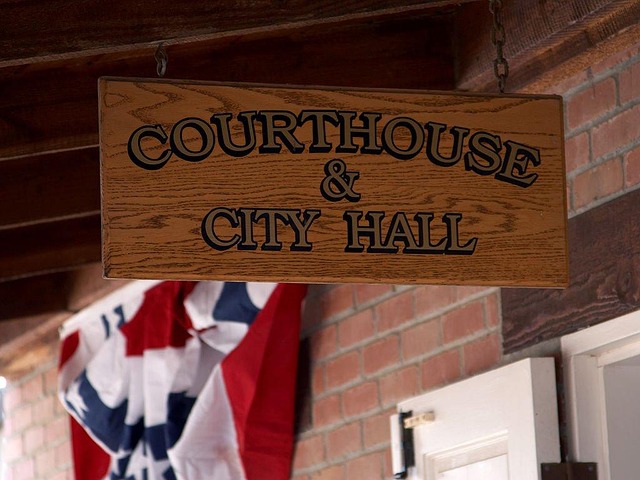Rising real estate financial crime probes demand robust Real Estate Litigation Strategies for Landlords. This includes strict internal controls, record-keeping, AML policies, and transparent reporting to avoid indictment. The legal framework balances landlord rights and tenant protection, with HUD and state laws ensuring fairness. Effective evidence collection, secure record-keeping, and proactive compliance mitigate risks. Strategic lease agreements, local law understanding, and clear communication prevent disputes. Meticulous dispute resolution plans, risk assessment, and counsel communication defend against financial crimes, fostering trust and business integrity.
In today’s digital era, real estate transactions have become increasingly complex, opening new avenues for financial crime. Understanding and navigating finance crime probes is crucial for landlords. This comprehensive guide delves into essential strategies to mitigate risks, from evidence collection methods to effective dispute resolution plans. Learn about the legal framework designed to protect landlords and avoid common litigation traps specific to real estate. Equip yourself with these insights to build robust defense strategies.
- Understanding Financial Crime Probes in Real Estate
- Legal Framework for Landlord Defense Strategies
- Evidence Collection and Preservation Techniques
- Common Litigations Traps for Landlords to Avoid
- Building Effective Dispute Resolution Plans
Understanding Financial Crime Probes in Real Estate

Financial crime probes in real estate are becoming increasingly common as regulatory bodies and law enforcement agencies crack down on illegal activities such as money laundering, tax evasion, and fraud. These investigations can have significant implications for landlords and property investors, who must be aware of their legal obligations at every stage of the investigative and enforcement process. Understanding the potential risks is crucial to developing effective real estate litigation strategies for landlords.
By implementing robust internal controls and staying informed about regulatory changes, respective businesses can mitigate the chances of becoming entangled in financial crime investigations. This includes meticulous record-keeping, transparent reporting, and adhering to anti-money laundering (AML) policies. Proactive compliance measures not only help avoid indictment but also foster trust among stakeholders, ensuring the longevity and integrity of their respective business operations.
Legal Framework for Landlord Defense Strategies

The legal framework surrounding real estate litigation strategies for landlords is a complex web designed to balance the rights of property owners with the need to protect tenants from unfair practices. At the heart of this framework are laws that govern fair housing, tenant’s rights, and landlord-tenant relationships. For his clients, understanding these laws is crucial in avoiding indictment for violations that could range from wrongful eviction to discrimination. The U.S. Department of Housing and Urban Development (HUD) plays a significant role in enforcing these regulations, ensuring landlords adhere to standards aimed at fostering inclusive and safe living environments.
Beyond federal laws, state-level legislation adds layers of protection for tenants while providing landlords with clear guidelines on legitimate practices. This dual approach, enforced by regulatory bodies and courts respectively, creates a balance that benefits both parties. Additionally, the philanthropic and political communities have contributed to shaping these laws through advocacy and policy initiatives, reflecting societal values of fairness, equality, and justice in real estate transactions.
Evidence Collection and Preservation Techniques

In finance crime probes, especially real estate-related cases, effective evidence collection and preservation are paramount. Landlords implementing robust litigation strategies must understand that documentation is key. Every transaction, lease agreement, financial record, and communication should be meticulously recorded and stored to avoid indictment in potential white collar defense scenarios. This includes digital records, emails, text messages, and any other form of electronic communication that could serve as evidence during all stages of the investigative and enforcement process.
Avoiding indictment requires proactive measures to safeguard relevant data. Landlords should implement secure backup systems, encrypt sensitive information, and ensure compliance with data protection regulations. By maintaining a thorough record-keeping system, landlords can facilitate a more seamless defense strategy if confronted with allegations, ensuring their position remains strong throughout the investigation and enforcement process.
Common Litigations Traps for Landlords to Avoid

Landlords often find themselves navigating a complex legal landscape, especially when it comes to real estate litigation. To avoid common pitfalls and protect their interests, it’s crucial to implement strategic approaches at every stage of the investigative and enforcement process. One area where many landlords trip up is in the realm of lease agreements, which must be meticulously crafted to prevent future disputes.
By understanding potential legal issues and employing robust documentation practices, landlords can significantly reduce the risk of facing costly jury trials or, worse, an indictment. For instance, clear and concise language regarding rent payments, maintenance responsibilities, and termination policies can go a long way in averting misunderstandings with tenants. Additionally, staying informed about local tenancy laws and regulations is essential to ensuring fair treatment throughout all stages of the process, ultimately fostering a more harmonious relationship between landlord and tenant.
Building Effective Dispute Resolution Plans

Effective dispute resolution plans are paramount for landlords engaging in real estate litigation strategies. A well-structured plan that encompasses all stages of the investigative and enforcement process is a robust defense mechanism against potential financial crimes. This involves meticulous documentation, thorough risk assessment, and proactive communication with legal counsel to navigate the complexities of white collar defense. By implementing these measures, landlords can mitigate potential losses and ensure their actions are legally sound.
Moreover, these plans should include strategies for early intervention and dispute prevention. Regular reviews and updates based on evolving regulatory landscapes and industry trends enable landlords to stay ahead of potential issues. This proactive approach not only protects against financial crimes but also enhances the overall efficiency of enforcement processes, ultimately benefiting both the landlord and his clients.
In navigating the complex landscape of real estate litigation, landlords can fortify their defenses by understanding financial crime probes, employing robust legal frameworks, mastering evidence collection and preservation techniques, avoiding common litigation traps, and building effective dispute resolution plans. By adopting these proven strategies, folks in the real estate sector can ensure they’re not just surviving but thriving amidst the hustle and bustle of the market, fostering a symphony of fair practices that revolutionize the industry.






